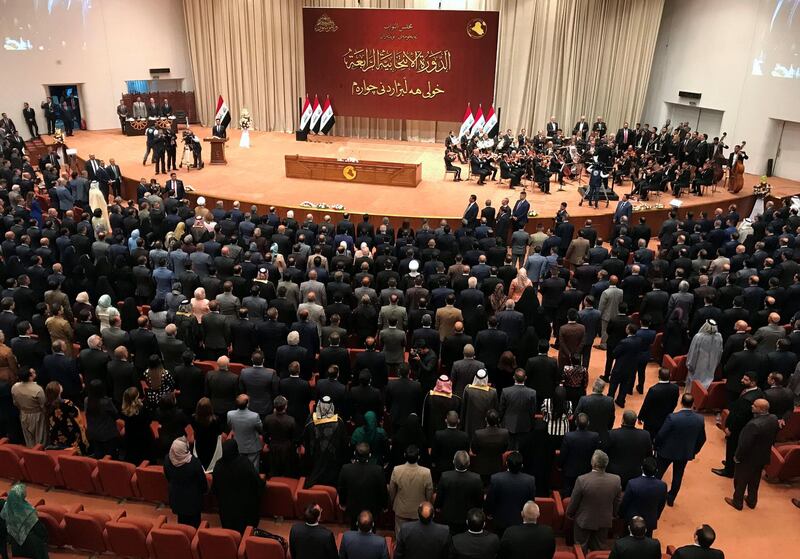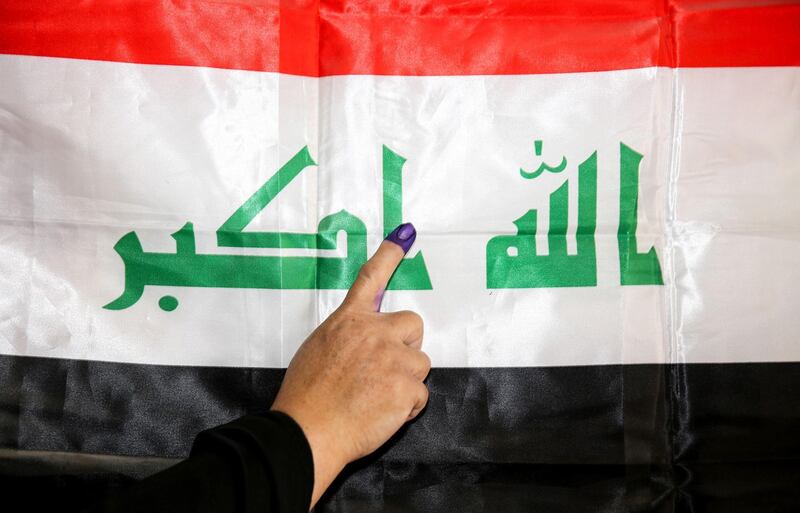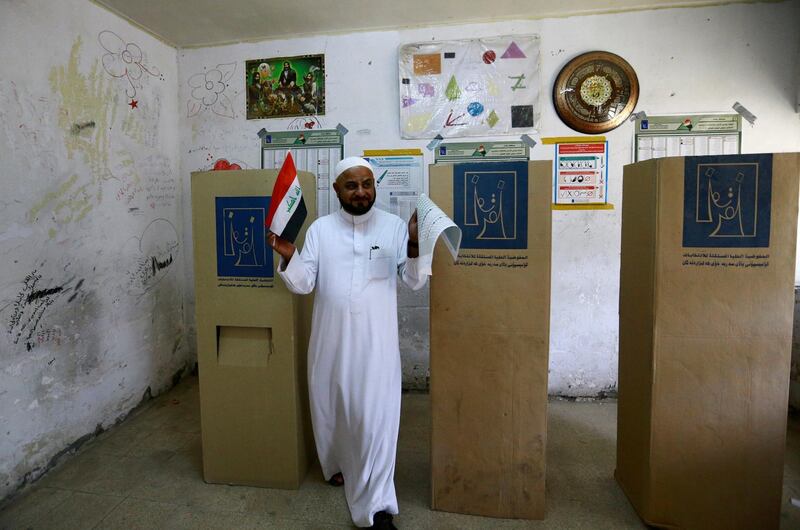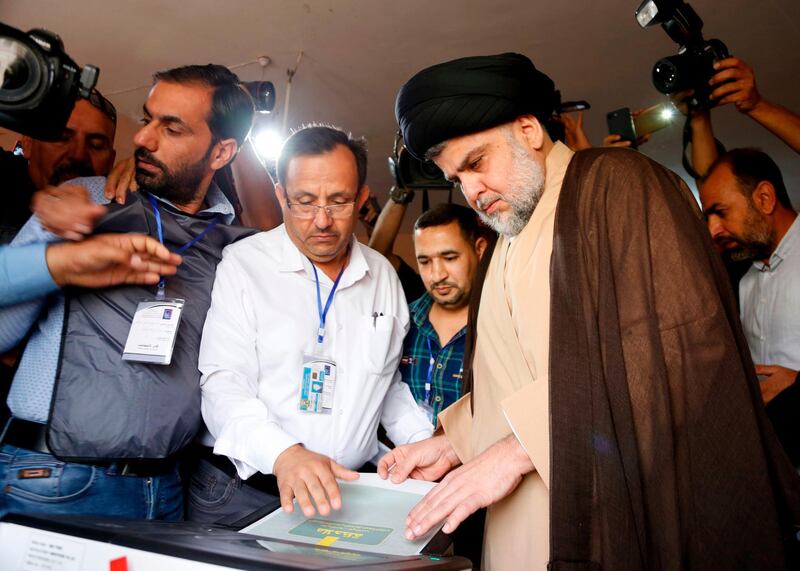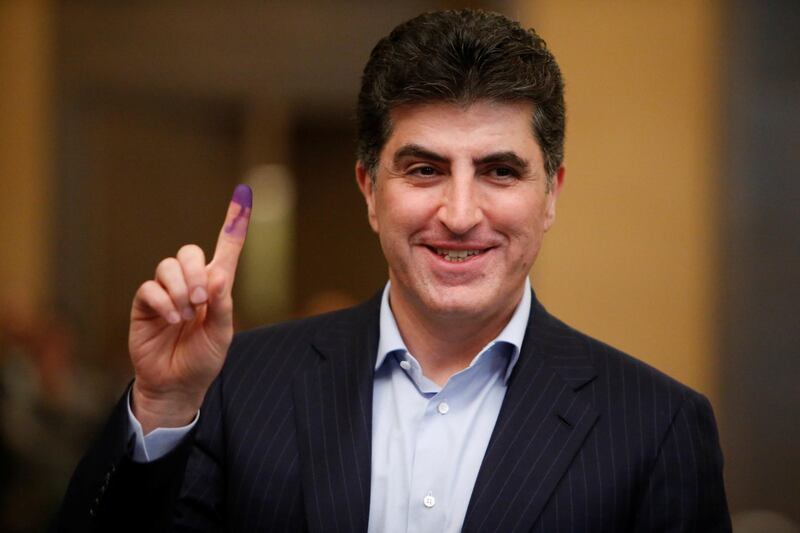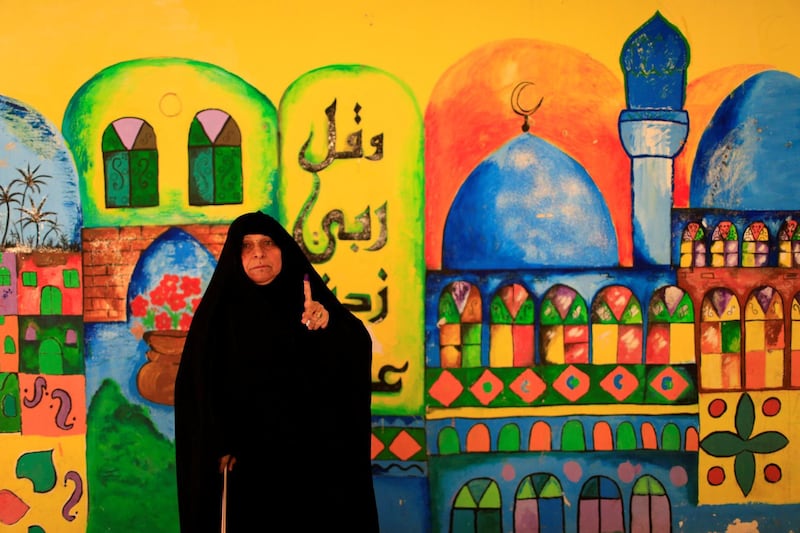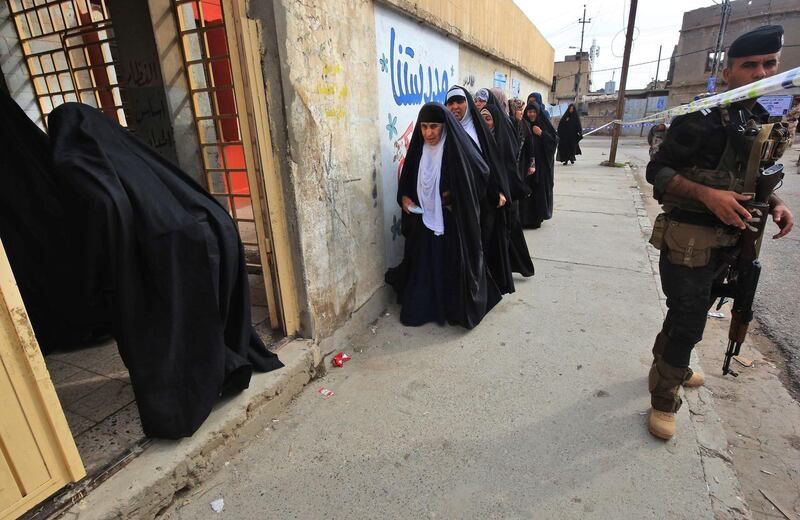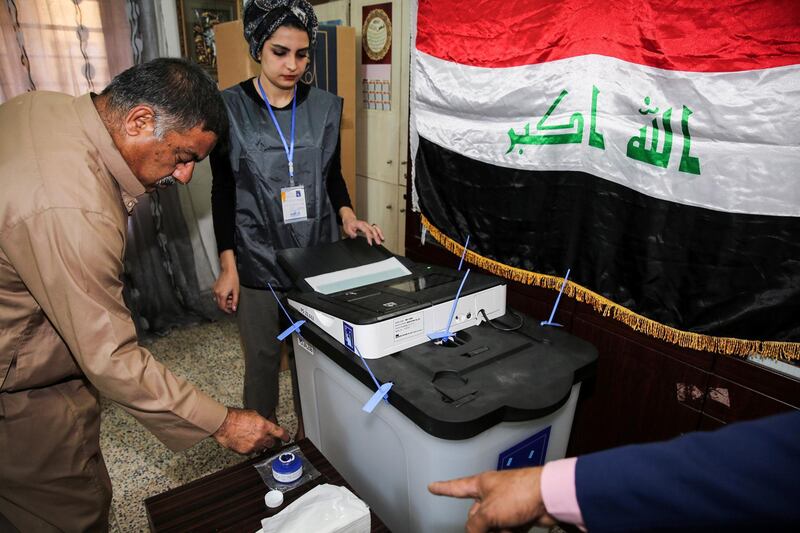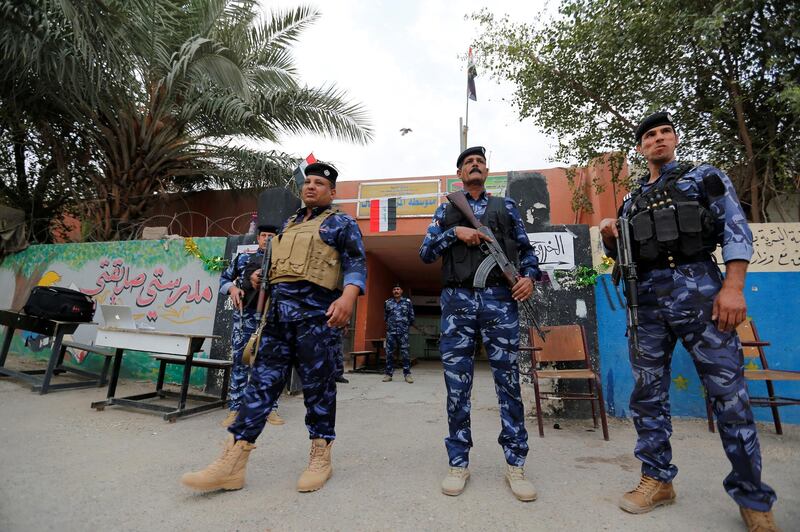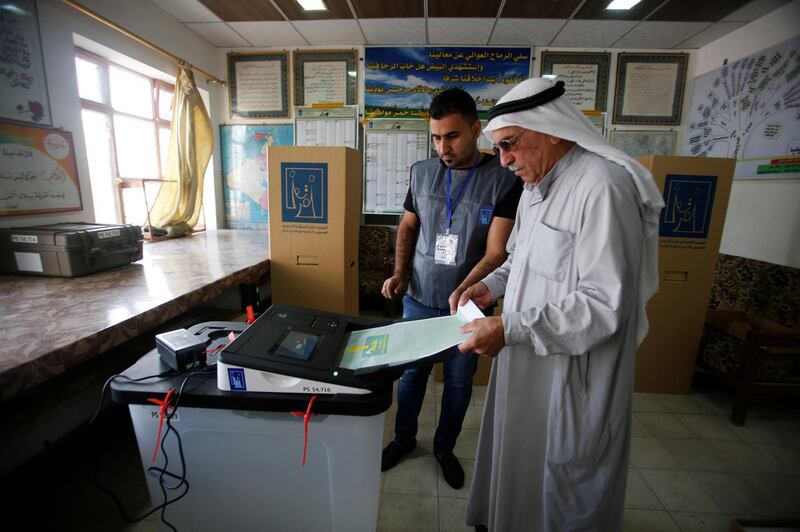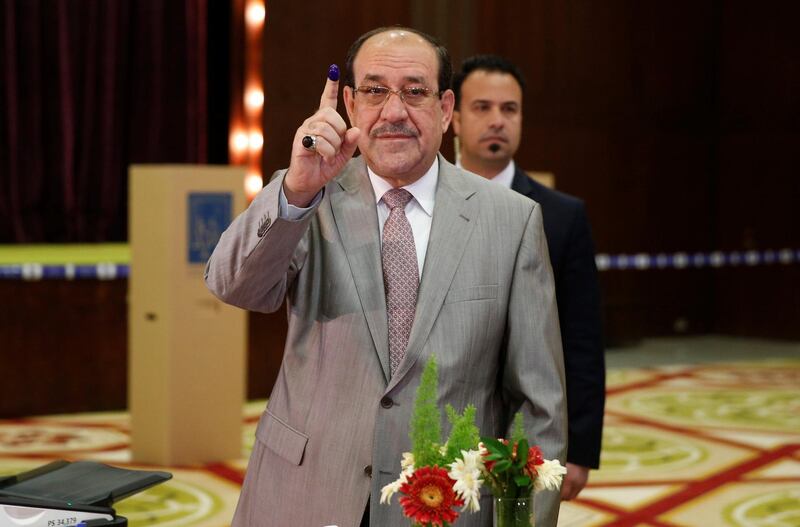Iraq's new parliament is convening today after a tumultuous four-month election process mired by a recount of votes following accusations of corruption and foul-play.
The result of the recount emerged with little change in the outcome of the election, presenting cleric Moqtada Al Sadr as the leader of the largest bloc, but fell short of forming a majority.
In this first session of parliament, MPs will elect a speaker of the house, and launch the government formation process, as well as taking their own oaths of office.
Within 30 days of the first parliament session, politicians will elect the next president.
* This blog will reopen when Iraqi parliament reconvenes on Tuesday September 4. Below is the developments for Monday's opening session.
_______________
18:30 Candidates announced for the position of parliamentary speaker
Six candidates - including vice-president Osama Al Nujaifi and Anbar governor Mohamed Al Halbusi - have nominated themselves for the position of Speaker of the House.
_______________
18:00 Prime Minister Haider Al Abadi new head of an Iranian-backed militia
Prime Minister Haider Al Abadi appoints himself as the head of Hashed Al Shaabi militia group, also known as the Popular Mobilisation Forces (PMF).
The paramilitaries supported Iraq’s military in combating ISIS in 2014, when Iraqi military and police divisions deserted the areas the militants overran.
_______________
17:30 Parliament session is adjourned until Tuesday
Mohammed Ali Zaini, the eldest lawmaker in the cabinet announced that parliament is in recess until Tuesday after various blocs withdrew from the earlier session over political divisions.
Parliamentarians led by cleric Moqtada Al Sadr and Prime Minister Haider Al Abadi said they created an alliance that would give them a majority bloc in parliament.
Yet, a rival grouping led by militia commander Hadi Al Ameri and former Prime Minister Nouri Al Maliki responded by saying it had formed its own alliance that would be the largest bloc in parliament.
_______________
15:30 Major political blocs storm out of parliamentary session
Parliament is suspended for an hour after Nouri Al Maliki's State of Law coalition and Hadi Al Amiri Fateh's coalition stormed out of the session.
_______________
13:50 Speaker of the house Salim Al Jabouri addresses parliament
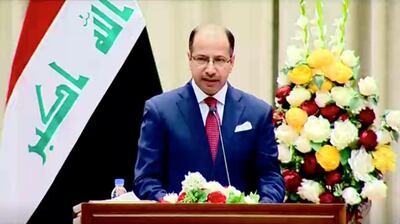
Salim Al Jabouri said the previous parliament was faced with challenging obstacles but has managed to achieve significant gains by defeating ISIS.
"We need a national consensus to ensure the support of the international community," he told the new parliament.
Mr Al Jubouri apologized to the Iraqi public for the government's inability to provide public services and for the slow pace of reconstruction.
The outgoing speaker called on the eldest lawmaker in the cabinet, 79-year-old Mohammed Ali Zaini, to take over the first session of the new parliament.
_______________
13:30 Prime Minister Abadi: When I took office Iraq was isolated because of ISIS
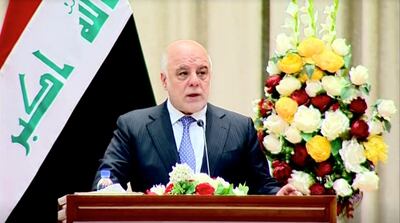
Haider Al Abadi said that new government will inherit a strong and united Iraq, and that the country has regained its place in the region.
“We received the government [in 2014] at a time when Iraq was isolated internationally and regionally because of ISIS,” he said.
The outgoing Prime Minister stressed that the new government must focus on providing adequate public services and reconstruction of war-torn cities.
“Iraq is seeking to build regional and international relations based on sovereignty,” Mr Al Abadi told the Parliament.
_______________
13:10 President Fuad Masum opens the first parliamentary session
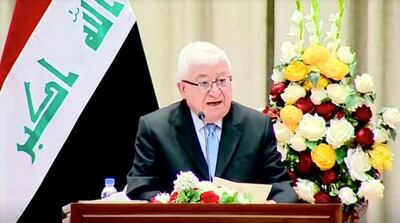
Iraqi President Fuad Masum beings the first parliamentary session outlining the need to rebuild the country, with a focus on security and lifting people out of poverty.
“Iraq has regained its regional and international place or role. We are seeking to form a government that will serve public demands,” Mr Masum said.
“We must review our political and security institutions so that we are able to cater to the demands of the public."
Mr Masum also warned of the dangers of oil dependency, telling the new parliament they are responsible for providing change to the country.
_______________
_______________
Kurds in control after two major blocs emerge
Lawmakers led by cleric Moqtada Al Sadr, the leader of the parliament's largest party, and Haider Al Abadi, the incumbent prime minister, say they have created an alliance to give them a majority bloc in parliament.
But a rival group led by militia commander Hadi Al Ameri and former prime minister, Nuri Al Maliki, say they have formed an alliance that would be the largest bloc after it claims some lawmakers have defected.
The power is now in the hands of smaller parties, mainly Kurds, who have not announced their allegiance to tip the balance.
The new government will be tasked with rebuilding the country after a three-year war with ISIS and balancing relations between Iraq's two biggest allies: arch-rivals Iran and the United States.
Since Saddam Hussein was toppled in a 2003 U.S. invasion, power has been shared among Iraq's three largest ethnic-sectarian components. The prime minister is a Shi'ite Arab, the speaker of parliament a Sunni Arab and the president a Kurd.
